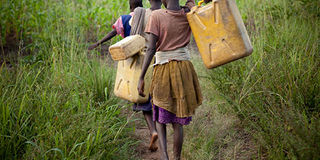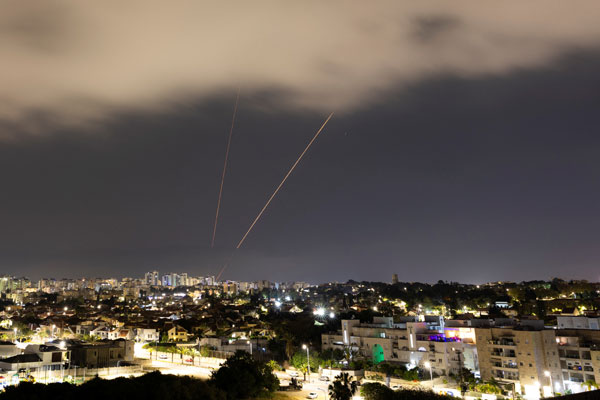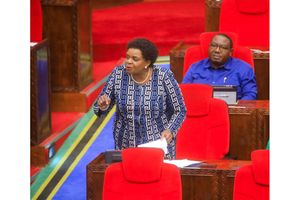Water share to GDP in Tanzania halved in nine years, report shows

The National Accounts 2007-2016 report shows that the share of water supply, sewerage, waste management to the GDP shrunk to 0.4 per cent in 2016 from 0.9 per cent in 2007. File photo
What you need to know:
The National Accounts 2007-2016 report shows that the share of water supply, sewerage, waste management to the GDP shrunk to 0.4 per cent in 2016 from 0.9 per cent in 2007
Dar es Salaam. The share of water supply, sewerage and waste management sector to the Gross Domestic Product (GDP) has gone down by more than 50 per cent over the last nine years.
This means that despite implementation of several water projects in Tanzania, the rate of water access still falls far below what the population demands. According to the National Accounts 2007-2016 report published by the National Bureau of Statistics (NBS), the share of water supply, sewerage, waste management to the GDP shrunk to 0.4 per cent in 2016 from 0.9 per cent in 2007. However, in terms of value, the share of water sector at current prices has increased from Sh240,898 million in 2006 to Sh422,698 million in 2016.
When calculated on constant prices recorded in 2007, the sector’s contribution to the GDP grew to Sh297.1 billion in 2016 from Sh240.8 billion.
Statistics show that water supply, sewerage and waste water management sector is the third among the least contributors to the country’s GDP.
Others are arts, entertainment and recreation with 0.3 per cent only while household activities contribution stands at 0.2 per cent.
However, the sector grew by a projected rate of 4.3 per cent, which is the highest in nine years. It contracted by 7.3 per cent in 2007 and 1.2 per cent in 2011.
Between 2012 and 2015, the water supply, sewerage and waste management sector was growing between 0.1 and 3.7 per cent annually. Nonetheless, the sector has the lowest implicit deflator among all sectors of the economy with the exception of information and communications.
Its share further dropped to 0.4 per cent in 2012, and increased by 0.5 per cent in 2013 and 2014. It further dropped to 0.4 per cent in 2015 and 2016. In a bid to improve its share to the GDP, the government has declared that it would start engaging the private sector to invest commercially.
The permanent secretary in the ministry of Water and Irrigation, Prof Kitila Mkumbo, confirmed to The Citizen that plans were afoot for the government to engage the private sector to increase its investment in the sector.
“We already have plans to increase water investments across the country. It’s our hope that bigger projects will be implemented because this sector is vital for human development,” he said.
According to him, by engaging the private sector they would be able to come up with projects that will uplift the sector.
Water budget was among the hotly debated issues in the 2018/19 budget where the Mlimba Constituency Member of Parliament, Ms Susan Kiwanga, railed against the government for moving at a snail’s pace in implementing water projects in rural areas.
She was airing her views after the minister for Water, Eng Isack Kamwelwe, tabled his ministry’s budget estimates of Sh673 billion for development projects in water and irrigation.
Ms Kiwanga faulted the government for spending big on multi-billion development projects including aviation while largely ignoring the water sector.
In response, the minister said by March, 1,493 projects were implemented, benefiting 21,321,500 rural residents, adding that implementation of other 366 projects was in progress.
The minister, however, disclosed that the implementation of the projects was facing a myriad challenges, including insufficient funds, noting that out of Sh623.6 billion allocated during the 2017/18 financial year, they received Sh350 billion only by March.
To address the challenge, the minister said the government strives to solicit funds from partners in order to complete the water projects smoothly.



